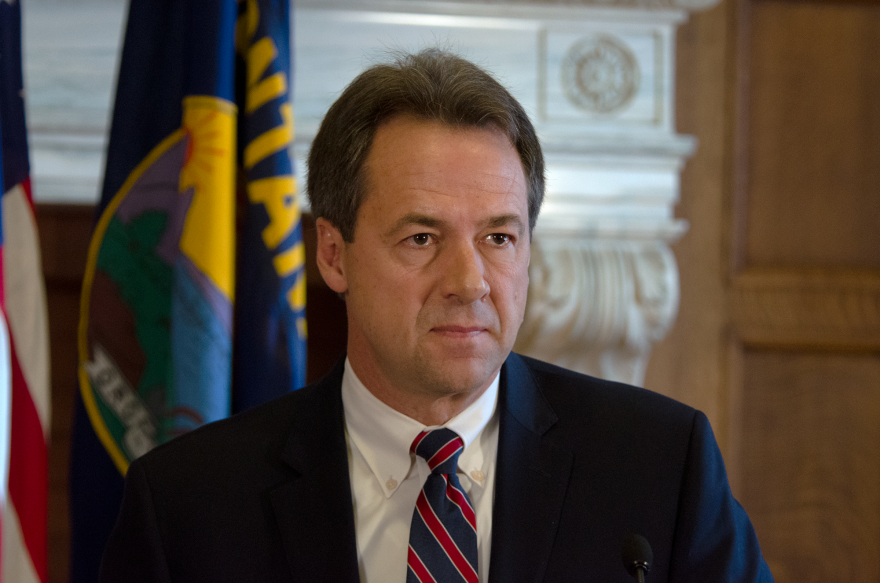The 2017 legislative session came to a chaotic end this morning. Democrats and Republicans fought until the final hour over funding long-term public works projects.
When the final gavel struck, Republicans leaders said they’re proud of their party’s unity and keeping government growth in check. Democrats also talked up their wins, but expressed frustration in being unable to accomplish their major goals.
“I don’t see what more I could have done,” Bullock said.
Democratic Governor Steve Bullock called a press conference after the $80 million infrastructure bonding bill he’s been pushing fell three votes short of the super-majority it needed to pass, held up by conservative Republicans and their caucus leaders.
“And we did meet them halfway, and more. Heard that there were not enough wins. It’s entirely on Republicans that blocked this effort. I mean I’m not naming names or pointing fingers. And it’s not my job. From that perspective, when those folks who had projects in their communities, that people are relying on when they go home. They don’t care about who shot john and what happened here, what they care about is making sure their school boiler gets fixed,” he said.
Republican Speaker of the House Austin Knudsen says he met with the Governor early this morning and listened to his offer to ease Republicans’ concerns about using state debt to pay for infrastructure. But, in the end, Knudsen says the offer wasn’t good enough.
“It was clear that their priorities were more important than our priories and that was reflected in the structure of this last minute attempt at a deal,” he said.
Knudsen points out the legislature did fund about $200 million of cash projects to maintain sewers, roads and bridges.
Republican leaders also point blame at Democrats for rejecting a different infrastructure bill to fund rural water system projects. Democrats voted against it, saying the infrastructure bills were a package deal to support the entire state, and either were going to pass or fail together.
In the 2015 legislative session, lawmakers also fought over bonding for public works projects. And this session, like the previous one, the debate went down to the last day and the proposal failed.
After officially calling an end to their work, lawmakers began reflecting on what they’d accomplished, or in some cases, failed to do, over the last 88 days.
Republican House Majority Leader Ron Ehli.
“We will leave knowing that we met our only constitutional requirement, to balance this budget and we will be happy, and we should be happy to slow the growth of state government,” he said.
The crafting of the state budget amid revenue shortfalls dominated most of the debate during the legislative session. During a farewell speech on the House Floor Ehli congratulated his caucus on passing a budget that resisted Governor Steve Bullock, and other Democrats’, efforts to raise taxes on tobacco, wine, and income taxes on the wealthy to provide additional funding for state agencies.
Democrats say there were unnecessary cuts in state programs, especially in the health department and higher education, because Republicans weren’t willing to consider the tax increases.
The one significant tax that did pass will gradually increase the cost of gas by 6 cents a gallon over the next few years to pay for highway and road maintenance.
In final speech on the chamber floors, both Republicans and Democrats praised work done to reform the state’s justice system during the session, in what Minority Leader Jenny Eck called the most compressive reform of the system in a generation.
“That’s about a dozen bills that make our system smarter and more just, saving money and giving our judges and prosecutors more tools to give defendants the right sentences and help reduce recidivism and make sure we use the prison system for the people that need to be there the most,” she said.
Lawmakers also joined together in a bipartisan effort reforms in the state’s child protection system, as the state deals with rising caseloads of child abuse and neglect.
As lawmakers cleaned out their desks in the House and Senate, more than 200 bills still await a decision from the Governor, including the state budget, which the governor can sign, veto, do nothing with, which would mean the budget would become law.



